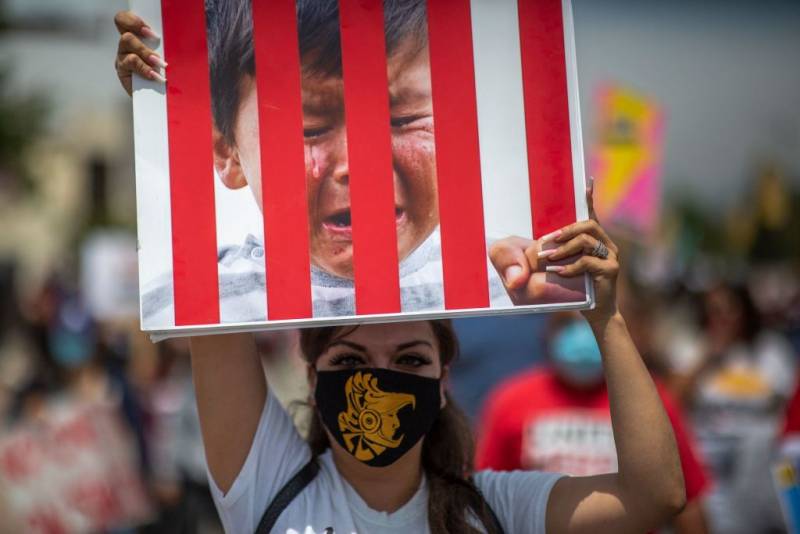Under the task force’s current process, family members — including parents or other household members of a separated child, like siblings — can apply for humanitarian parole from U.S. Citizenship and Immigration Services, even if they have been previously deported. The agency then screens applicants for public safety or national security threats.
Attorneys with the ACLU also believe that parole process could be available to families who were initially separated and then reunified outside the U.S.
Once the parole request has been granted by USCIS, the government will facilitate the family’s travel to a U.S. port of entry, according to the task force. There, family members are screened again by a U.S. Customs and Border Protection official, who can authorize parole for up to three years. While parole is a temporary status, it allows recipients to apply for work authorization and potentially restart an asylum application.
On the ACLU press call Tuesday, Gelernt said the ACLU is negotiating, as part of the settlement talks, for permanent legal status and compensation for the harm and suffering inflicted on the separated families.
The task force is also exploring continued support for the families, including ongoing case management services and referrals to clinical behavioral treatment services, and intends over the next two months to determine the scope of those services and find a “durable funding source,” according to the report.
“The Task Force seeks to implement needed holistic support and services for reunified families so that they may benefit from behavioral health assessment and treatment,” the report states. “Needed services will include housing, employment, security, legal status, food insecurity, income, language skills and interpretation, the asylum-seeking process, and discrimination.”
In a joint statement, House Judiciary Committee Chairman Jerry Nadler, D-New York, and Rep. Zoe Lofgren, D-San Jose, who chairs the committee’s Immigration and Citizenship Subcommittee, praised the progress the task force has made. But they said, “much more must be done to ensure that every child is swiftly reunited with their parent or legal guardian in the United States,” and noted that for many families “reunification alone is not enough.”
Currently, the task force is only focused on separations that were a direct result of the Trump administration’s zero tolerance policy, or similar initiatives. It has not yet taken up the cases of more than 1,000 separated children whose parents were deemed “unfit” by border agents because they had criminal convictions on their record, those who were “apprehended in the interior” or parents who had a communicable disease. According to the report, the task force is reviewing these cases to see if they fall under the scope of its mandate.
The next report is due in 60 days.
Read the full report here.

